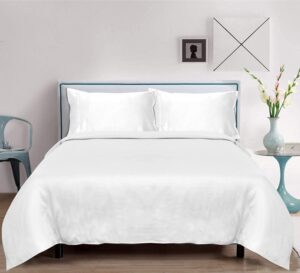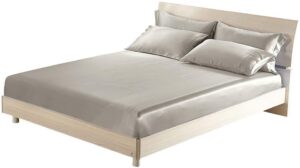Sweats or hot flashes are a feeling of warmth, sometimes associated with flushing, that spreads over the body and is sometimes followed by perspiration. It is very common in pregnancy and is often worse at night.
Symptoms:
-
A sudden feeling of warmth spreading through (mainly) your chest, neck and face.
-
Irritability and tiredness.
-
Disturbed sleep.
-
Often comes with flushed appearance with red, blotchy skin.
-
Rapid heartbeat may also be felt, causing feelings of anxiety also.
-
Perspiration, mostly on your upper body.
-
A chilled feeling as the hot flash lets up.
-
Hot flashes tend to be the worst at the two-week mark after childbirth, after which they typically decline.
Causes:
-
Research suggests that hot flashes occur with changes in oestrogen levels. Oestrogen fluctuates throughout pregnancy and following the birth of the baby. This may cause your body’s ‘thermostat’ to become more sensitive to slight changes in body temperature and react accordingly (with a hot flush).
-
Other causes can include stopping (or restarting smoking).
-
High blood pressure.
-
Anxiety / depression (due to the impact on hormones this can have).
-
Obesity.
-
Insomnia.
Here is what the evidence says about the treatment options:
Bed sheets – if night sweats are your main issue then definitely look at different bed sheets. They won’t stop the sweats but they can certainly leave you feeling more comfortable when they happen. Literature suggests that bamboo sheets are best for regulating temperature and keeping you cool but there are very few large scale, clinical studies to back these claims. THESE sheets by Linenwalas are really popular on Amazon and come with great reviews.
The other option is silk sheets, they tend to be more expensive but are becoming really popular. As it is a fairly new ‘trend’, there are not a lot of studies available to assess the actual effectiveness of silk on body temperature so the only thing we can go off at the moment are reviews like these on Amazon. Lily Silk seem to be a very popular brand and more affordable than some of the others on the market.
Hypnosis – evidence is available for the use of hypnosis on hot flashes. Most studies done are on ladies affected by menopause symptoms but there are some promising results. THIS study states that hypnosis has consistent evidence for clinically significant reduction of hot flashes.
Avoidance / management – evidence shows that avoiding or managing certain things can help reduce hot flashes. Stress and anxiety have been shown to trigger hot flashes so getting help with this could be really beneficial. Avoiding too much caffeine and alcohol can also help along with spicy food and large meal reduction.
Yoga / meditation – because evidence is available to show the links with stress and anxiety and an increase in night sweats, Yoga or meditation (or the two parts combined) would be a good option if you are really struggling with the discomfort associated with night sweats.
There are lots of Online Yoga programmes available, have a look at our Top 5 here (and why we love them)! You can also read our blog on how yoga can help in other ways.

What symptoms to watch out for when suffering with recurrent night sweats:
-
Weight loss
-
Recurrent headaches (often hormone related but keep an eye on these)
-
A history of cancer
-
An autoimmune disease
-
Pain getting worse when at rest or at night
-
Any recent trauma
-
Any recent changes to the bowel or bladder that don’t tie in with your pregnancy
-
Fever
-
Any neurological issues in the legs / genitals / buttocks
If you suffer with any of the above symptoms then please let your healthcare provider know or go to A&E.


